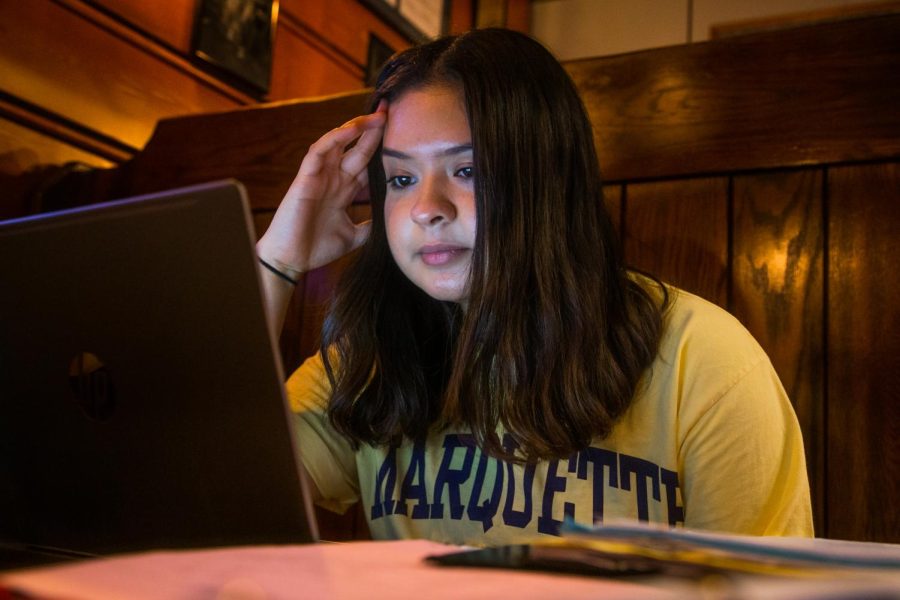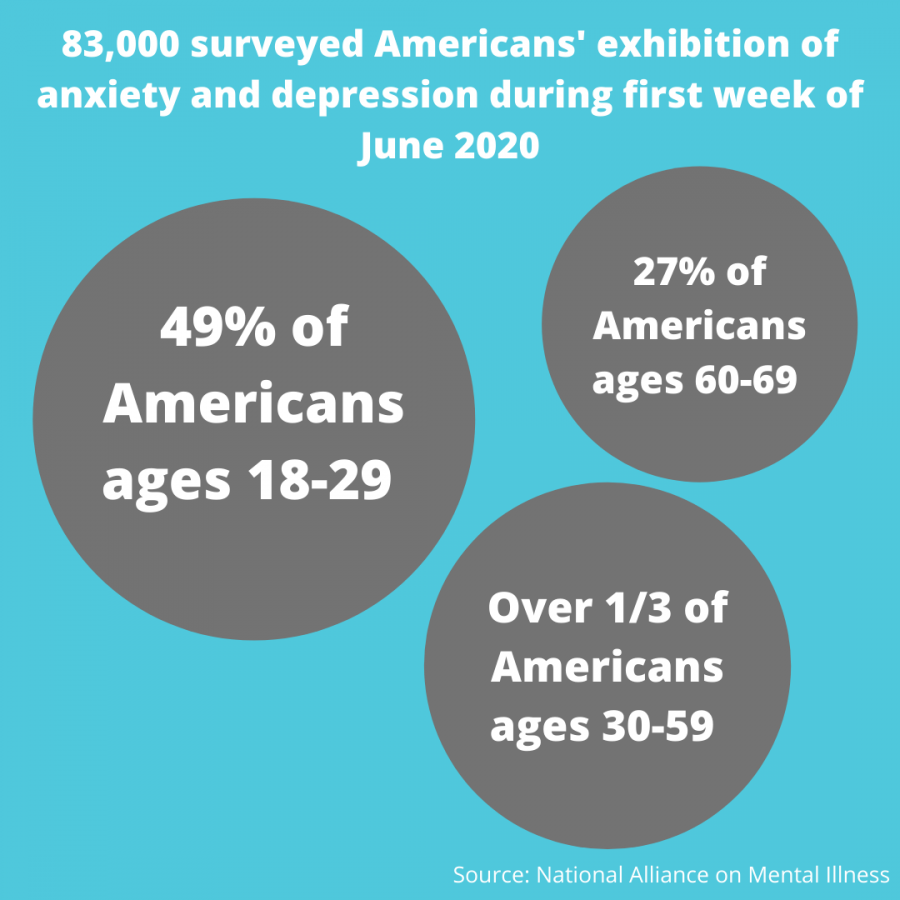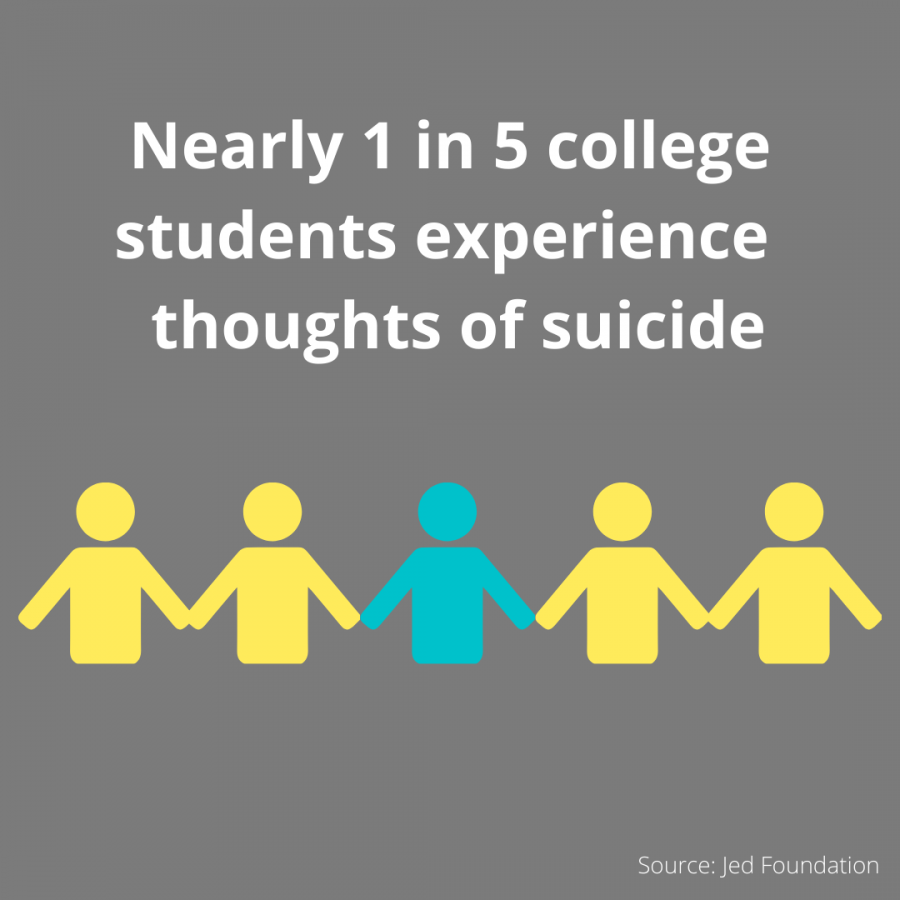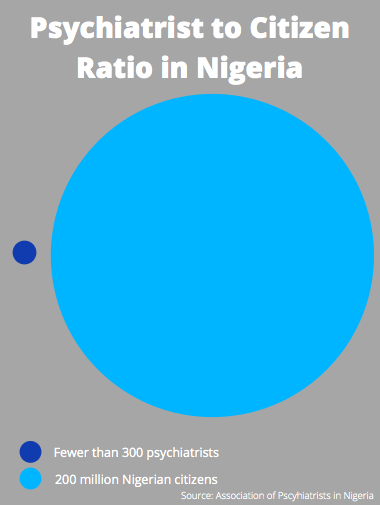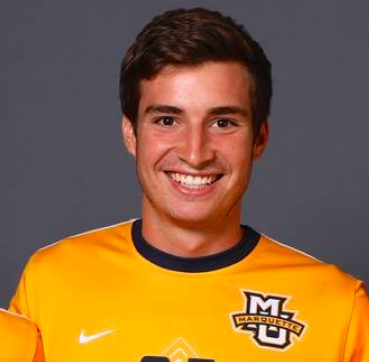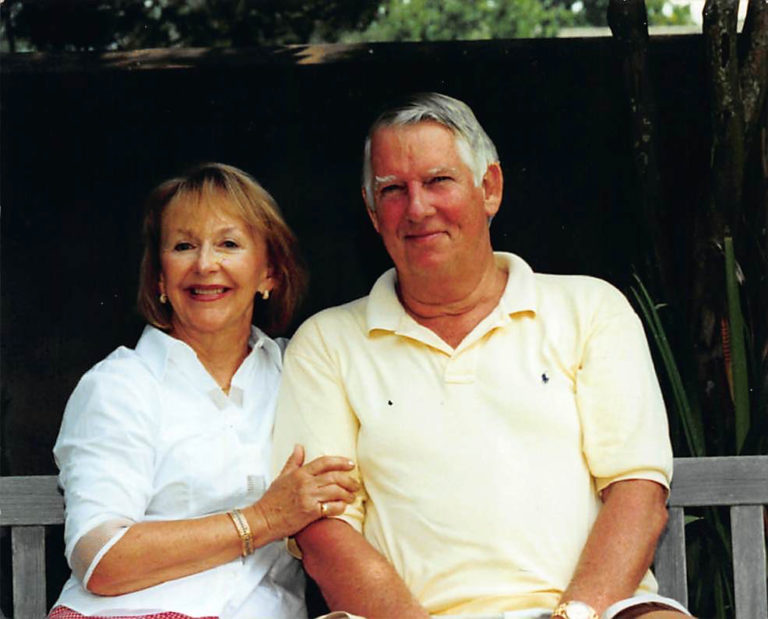The COVID-19 pandemic created a rise in mental health challenges such as anxiety, depression, suicidal tendencies and other mental health conditions that many refer to as “the mental health pandemic.”
The stay-at-home orders and physical distancing guidelines made it hard for people to feel any sense of normalcy in a time of uncertainty brought on by the pandemic.
“Human beings have a natural need for predictability and routine,” Stephen Saunders, the chair of the psychology department at Marquette, says.
COVID-19 brought disruption to day-to-day lives due to the shift in home and work dynamics that made many individuals feel isolated and lonely.
“The term that we all came to be familiar with was ‘social distance’ and I really wish they’d come up with something else,” Saunders says. “It’s really being physically distanced; Six feet is a physical distance, but you don’t have to be socially distant even at six feet.”
Social distancing has been proven to be 80-100% effective in preventing the spread of COVID-19.
“I think it’s a really unfortunate term because since physical distance is necessary, you need to increase your social interactions even more,” Saunders says.
Back in March 2020, when COVID-19 was declared a national emergency, college students were forced to move home and continue their education online.
“The social distancing restrictions made it very challenging for students to build community and friendships that are essential to college life,” Judy Evenson, a psychiatric mental health nurse practitioner at the counseling center, says. “The resulting loneliness and sense of isolation coupled with chronic worry can often be precipitating factors in the development of mental health problems.”
Best Colleges reported that 95% of college students have experienced negative mental health symptoms as a result of COVID-19-related circumstances, 45% reported increased anxiety and 36% reported increased depression.
Social isolation due to COVID-19 created many psychological consequences for college students such as increased irritability, lack of focus, self-doubt and a sense of hopelessness.
“When transitioning to this year, I developed bad social anxiety at school even just going to class,” Abby Willner, a sophomore in the College of Communication, says.
The fall 2021 semester is the first semester back in-person for many students since the pandemic began in the spring semester of 2020. Since returning, many students have reported difficulty participating in class, completing homework and making friends.
“COVID-19 has taken away a lot from my college experience,” Amy Baudhuin, a junior in the College of Communication, says. “I definitely felt like I was not getting the most out of my time here at Marquette, seeing as this is my first full year of in-person classes as a junior.”
For some, the implications of COVID-19 caused an increase in stress due to the state of uncertainty in the world.
“Over the past year and a half, issues with the pandemic, job insecurity, political stress, isolation and issues around racial injustice have led to many stressors that may be impacting people’s mental health and may be leading more people to seek out support,” Nicholas Jenkins, counselor of mental health advocacy at the counseling center, says.
Evenson recommends four things students can work on to improve their sense of well-being. The first thing she recommends is self care.
“One of the big things is self-care, which is not always the long hot bath, spa day or gym workout that the mainstream media portrays,” Evenson says. “In some cases, it might be saying no to a social event so you can catch up on sleep or spending some extra time planning your meals so that you can avoid ordering fast food when you are in a time crunch.”
Best Colleges described college students’ top five self-care activities as spending time doing a hobby, physical activity, spending time outdoors, spending time with pets and taking time off of social media and news.
Evenson says she also believes setting boundaries with friends and family as well as technology and the news can help students feel less on edge and limit their exposure to unnecessary stress.
“Don’t be afraid to say no,” Evenson says. “Sometimes we all need to turn down plans to get some extra sleep and all of the stimulation from our phones, news, social media ends up being internalized. It’s important to think about what you can do to limit your exposure to this type of stress.”
It can also be important to stay connected to family and friends to avoid loneliness caused by quarantine.
Parents, siblings, friends and roommates can act as support systems while readjusting to post-COVID life.
“You are allowed to have hard days, and so are the people in your life,” Evenson says. “It’s okay to not be okay, and it’s important to ask for help when you need it.”
The Marquette University Counseling Center offers individual and group counseling, psychiatry and free service for full-time students.
The counseling center can also assist with helping students find a mental health provider in the community.
“I think that there has been the perception that someone with a mental health concern is crazy, insane, dangerous, weak or broken,” Jenkins says. “By openly talking about mental health concerns and being open to seeking out help, we are able to better address our concerns and experience less distress.”
The Marquette University Counseling Center is open 8 a.m. to 4:30 p.m. Monday through Friday and offers a range of behavioral health services such as therapy and medication management.
This story was written by Bailey Striepling. She can be reached at [email protected].

